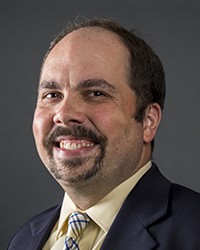

by Doug Burleson
Synopsis: Doug ends the discussion with an analysis of interpretive principles that must be utilized in establishing authority for any practice considered in this discussion.
Regarding the division over congregational cooperation, Bill Humble concluded fifty years ago that this "is the most serious division, numbers-wise, that churches of Christ have suffered" (74). He added, "Whether the division is final […] is yet to be determined."1 While this discussion reaches back earlier, Harrell noted it was after the economic boom of the 1950s that it "reached [a] schismatic dimension" (567).2 Any discussion of cooperation begins with historical awareness, including what we've inherited as readers of Scripture. For example, brother Kyle has correctly noted that the post-Enlightenment distinction between groups and individuals does not nullify the usage of singular or plural parts of speech in Scripture. In the context of 1 Timothy 5 (a letter written to an individual with applications for the church) the individual-group, family-congregation distinctions are clear, but in Galatians 6 and James 1, passages Kyle did not address in his last two articles, this distinction cannot be exegetically maintained.
I have pointed to the trajectory of Scripture, along with the examples of the households/dependents of Christians in Acts, Galatians 6:10, James 1:27, and 2 Corinthians 9:13-14 as places where these distinctions cannot be maintained. Kyle suggested that the use of the word koinōnia in 2 Corinthians 9:13 as paralleled in the same letter (6:14; 8:4; 13:14), delimits the generosity of Corinthian brethren to Christians alone. Paul later describes God's work in Romans 15:8-9 as something that would lead Gentiles in Rome, Spain, and beyond to glorify God. This work would not only build up the fellowship of the saints, but caused all to benevolently benefit. Also it seems that either the Jerusalem congregation served as a "sponsoring congregation" by receiving funds first for its members and then distributing them or that the church used the funds to relieve both saints and non-saints.
As Kyle quoted, I do believe in the prohibitive nature of biblical silence and that "Scripture must be read in the context of commands, examples, and inferences," but I'd urge readers to read the rest of the article he quoted. I also wrote, "readers of Scripture need to understand the commands, examples, and inferences in the historical, theological, and literary context of that world" (70). I certainly believe that silence may be prohibitive, but it may also be that God either hasn't spoken on a matter (Deut 29:29) or that His silence is incidental, which is where expedients and additions are differentiated (58-66).3 It would be a mistake to say that silence is permissive, but also to conclude that silence is always prohibitive (this was the context in which my statement about Scripture not forbidding the practice was written). Thus, as I have shown in these articles, any biblical statement must be set in the framework of the historical, literary, and theological context of Scripture.
I was disappointed that Kyle so quickly dismissed the application of theological context. While God makes laws and eternally punishes, he also desires that Christians reflect His holiness. The trajectory of Scripture with regard to God's benevolence speaks as clearly as any of the passages we have referred to in these articles. God says it and shows it. Should we believe that because we are not sovereign that nothing from God's character is helpful for Christian faith and practice? Cannot the same God who says what He desires for us to do with regard to the poor, the orphans, and widows (Gal. 6:10; James 1:27; et. al) also show that concern with consistency throughout both testaments? God has called us to "be holy as He is holy" (Lev. 11:44-45; 19:2; 20:7; Deut. 23:1; 1 Pet. 1:15-16), while Christ instructed that we "love one another" as He first loved us (John 13:34-35)? Where is this holiness or love better manifested than in service to others, including the non-Christian? This is not just about asking "what would Jesus do," but it's also about making note of "what Jesus did do."
With regard to the work of the church, I understand the purpose of the assembly and the nature of the assembly (qahal, ekklēsia). Where in these articles have I urged that the work of the church be farmed out to institutions? I have never believed it is the primary work of the church to promote human institutions, but would agree with what Pres. L. R. Wilson, the first president of Florida Christian College, said in his inaugural address, "The primary purpose […] will be to educate and develop Christian character" (202).4 Even when a representative of a non-institutional institution speaks to a congregation and avoids appealing to the church for funds, he is sometimes invited because of his ties to a particular school and introduced as a graduate or representative of the school. It would be a mistake to try to separate the influence of many non-institutional and institutional brethren from the church-affiliated institutions at which they trained. It's ironic that a speaker can be invited because of his affiliation with an institution, introduced as a graduate or representative of an institution, and invited to many events hosted by the institution and yet any official connection between the institution and congregation be denied. Kyle wants to draw parallels to the argument for instruments based on its advocates' argument that God's silence is permissive, but I am asking how his claim that "any cooperative effort that isn't the home, the church, or civil government is a human institution" can allow for Athens Bible School or Florida College to exist? Could this possibly lead to the educational work of the church being accomplished "vicariously through a separate organization" or is the question one of whether congregations can oversee the work or support it out of the treasury?
With regard to cooperation let me be clear. We ought to love one another as brethren in word and deed. If one has been taught that every "institutionalist" is a liberal who has forsaken biblical authority and now believes that manmade institutions are the lifeblood of the church, then he or she has not been taught the truth about many of the "I brethren" I know. If one has been taught that every "non-institutionalist" is a legalist who has failed to love the poor or orphans and thus should be shunned, he or she has not been taught the truth about many of the "NI brethren" I have come to know. In his last paragraph Kyle suggested that the "unscriptural additions" of institutional brethren make cooperation difficult. Given where this discussion has been and how some brethren still view these issues, I understand his remarks. While our differences are evident, I am thankful that some are already finding ways to converse and cooperate.
My challenge would be to have conversations with brothers or sisters in your community who disagree with you on the questions Kyle and I have been discussing. For too long we have operated in parallel universes, huddling in our own conferences, writing in our own journals, operating our own homeschool co-ops, and sometimes talking about brethren who disagree on these issues rather than talking to those brethren. Kyle, my prayer is that you also receive my words in the spirit of brotherly kindness, that our God may be glorified, and that one day we will be truly one in Christian unity and fellowship. I respect the editors of Truth Magazine and Gospel Advocate for their courage in inviting Kyle and me to participate in this series. May this be a step towards the sharpening of a desire to study with one another that the world might be reached with the gospel of Jesus Christ through the precious institution established in Acts 2, the church of Christ.
1 Bill Humble. The Story of the Restoration. Fromm International, 1969.
2 David Edwin Harrell, Jr. "Noninstitutional Movement." Pages 567-69 in The Encyclopedia of the Stone-Campbell Movement. Eds. Douglas A. Foster, et. al. Grand Rapids: Eerdmans, 2004.
3 Doug Burleson, "Bible Authority," Pursuing the Pattern: A Careful Examination of New Testament Practices, Ed. Jim Deason. CreateSpace Independent Publishing Platform, 2017, 55-74. For a similar distinction see Earl D. Edwards. Protecting "Our Blind Side:" A Discussion of Contemporary Concerns in churches of Christ. Henderson, TN: Hester Publications, 2007 (page 224).
4 M. Norvel Young. A History of Colleges Established and Controlled by Members of the Churches of Christ. Kansas City: Old Paths Book Club, 1949.
Author Bio: Doug serves as an Associate Professor in Bible at Freed-Hardeman University where he also is the Assistant Dean of the College of Biblical Studies. He labors with the Estes Church of Christ in Henderson, TN. The church website is esteschurch.org. He can be reached at dburleson@fhu.edu.
